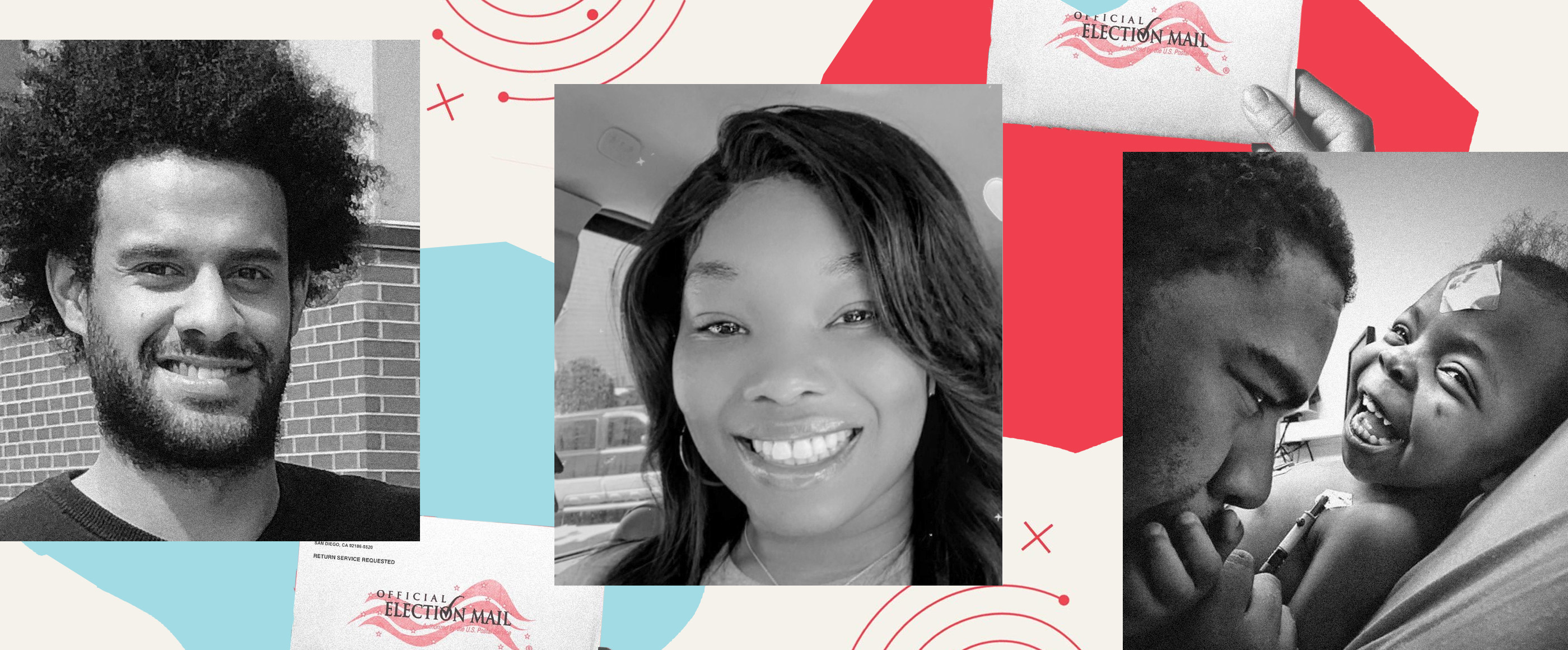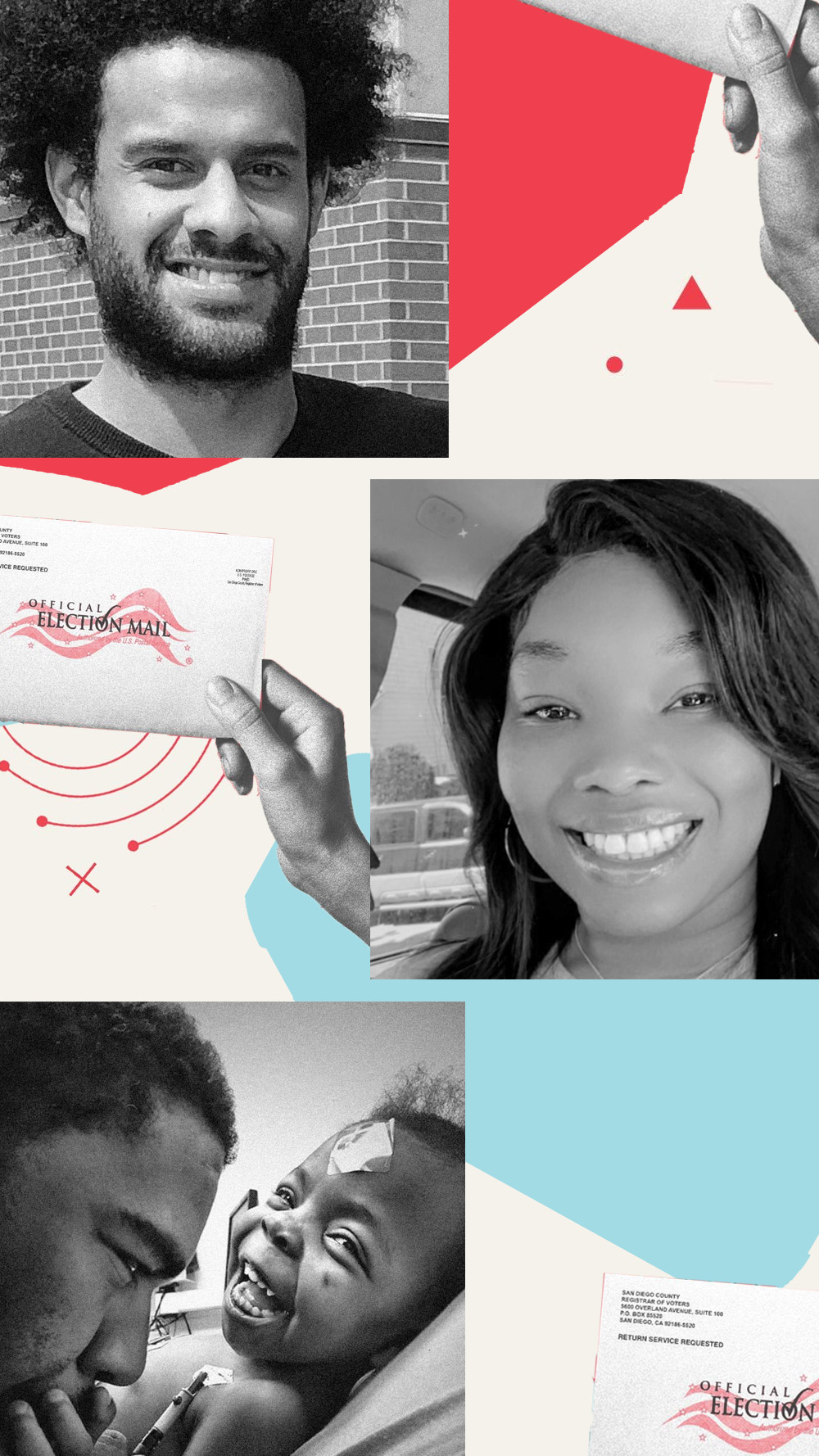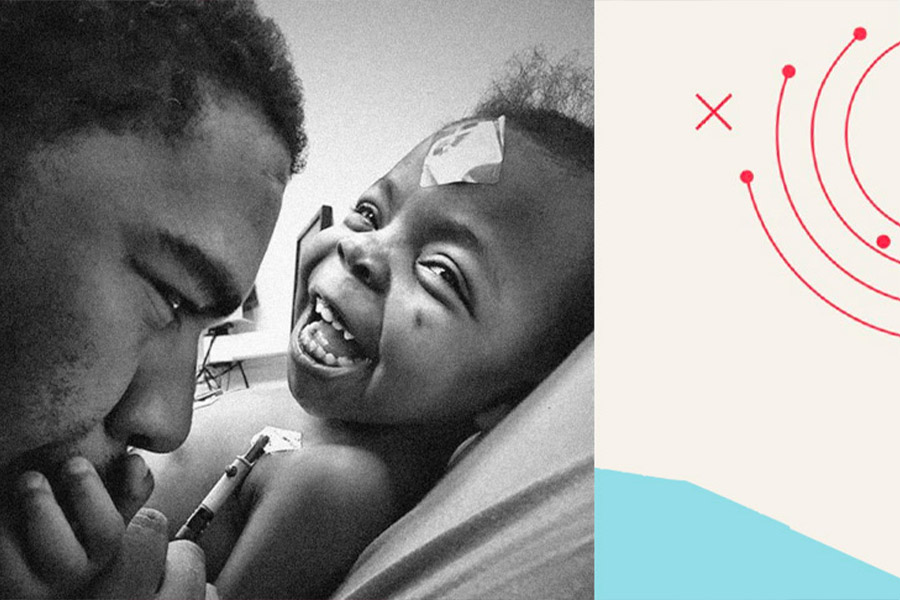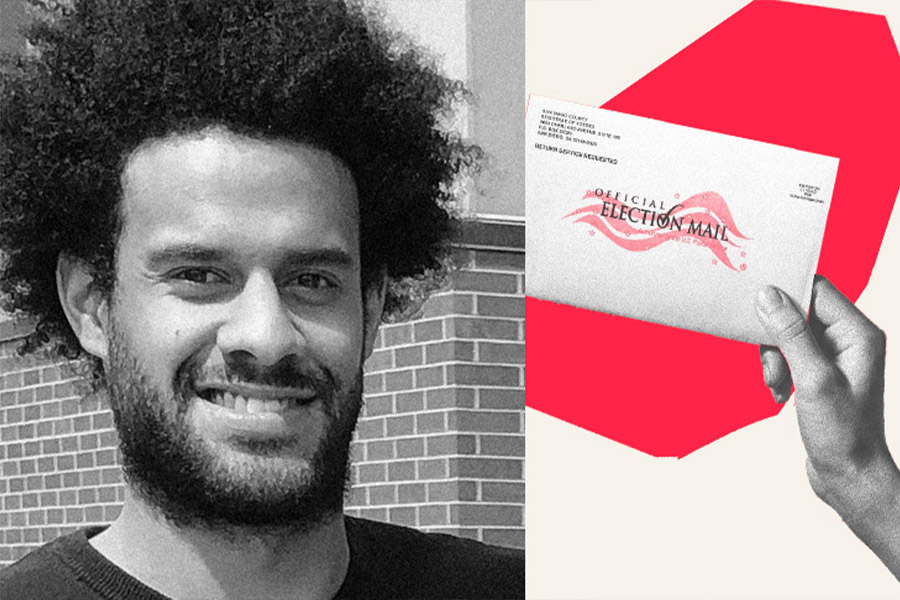Three Missouri Voters Explain Why Everyone Should be Able to Vote by Mail in 2020


The COVID-19 pandemic has changed the way the world operates, but as the presidential election approaches, many states have failed to respond when it comes to voting. The safest way to vote during the pandemic is to vote by mail, but state restrictions block many voters from doing so. The ACLU has sued 10 states for restricting access, including Missouri, where the state legislature just voted to expand access in 2020. While the Missouri legislature win was a major step toward progress, the state is still restricting access by requiring most voters to notarize their mail-in ballots — which means they have to violate social distancing recommendations to vote by mail.
The ACLU is fighting the notarization requirement on behalf of voters like Cecil Wattree and Javier Del Villar — two Missourians who joined the original lawsuit because they wanted to exercise their right to vote by mail. Cecil, Javier, and fellow Missouri voter Kamisha Webb shared their stories with the ACLU to show why voting by mail should be accessible — and safe — for all.
Vote by mail to protect Kamisha

For Kansas City resident Kamisha Webb, going to the polls could put her life in jeopardy. Kamisha has asthma and a condition called hereditary angioedema, which requires her to use a nebulizer machine, various medications, and biweekly injections to manage her health. A cold or flu could land her in the ICU. Contracting COVID-19 could be fatal.
Kamisha is doing everything she can to be safe. She stays at home on paid leave from her job because teleworking isn’t an option. She talks to her grandmother virtually, despite wanting to see her in person. But she’s worried she may not be able to take similar safety precautions when it comes to voting.
"Whether or not someone has a health condition, we have a deadly virus on the loose. We should all have the right to not only vote, but to be safe in doing that."
“I feel like I have to choose whether to exercise my right to vote, or risk putting my life on the line,” she tells the ACLU. “And no one should have to mix the two, ever.”
Kamisha first learned about absentee voting when she overheard people signing up at a polling place during the 2018 midterm election. She learned that it was an option for people who are sick, for example, or have a disability that hinders their ability to vote in person.
“I just thought, wow, that's so cool to have a process in place for individuals to still vote if they’re not able to physically go to the polls,” Kamisha tells the ACLU. “It would be wonderful if we could take that same idea and make an exception due to COVID-19. Whether or not someone has a health condition, we have a deadly virus on the loose. We should all have the right to not only vote, but to be safe in doing that.”
People of color will likely be harmed most by restricting access to voting by mail. Voter suppression efforts already target people of color nationwide, and COVID-19 disproportionately affects people of color, particularly the Black community, to which Kamisha belongs. She attributes this to the prevalence of underlying health conditions, lack of access to health care and insurance, and discrimination in medical care. On the higher death rates in the Black community, Kamisha is “saddened, but not surprised.”
Kamisha joined the Missouri lawsuit not only because she is at risk, but because she believes everybody should be able to vote by mail during the pandemic. If the court rules in her favor, she says she will be overcome with joy: “I’m kind of filled with emotion just thinking about it.”
Vote by mail to protect Cecil’s daughter

By the time she turned eight, Cecil Wattree’s daughter, Allyn, had gone through open heart surgery, multiple strokes, was placed on a ventilator, and was on a waiting list for a heart transplant — among other ailments and surgeries resulting from her being born with hypoplastic left heart syndrome.
“It’s a gift of God that she recovered to the point where she is able to function,” says Cecil. “But it still leaves her immunocompromised when it comes to her lungs and her heart.” That makes Allyn high risk to COVID-19. When the ACLU sued Missouri, he joined the lawsuit, explaining, “I’m in a unique position to be able to advocate for my daughter.”
Cecil constantly worries about exposing his daughter to the virus, especially because he still has to go to work at a primary care clinic. The clinic has taken precautionary measures, and Cecil is being “super hyper vigilant” at home because of his daughter.
“When I come home, I have to pretty much take all my clothes off in the garage or the cellar and then run into the bathroom and take a shower before I even see Allyn,” says Cecil. “Even after that, it’s a struggle to be safe when you have a highly affectionate eight year old who wants to be in your arms. I always worry that I might have encountered the virus in some way.”
As a Black man, Cecil has to navigate a world where his race directly impacts his ability to stay safe.
It doesn’t help that as a Black man, Cecil has to navigate a world where his race directly impacts his ability to stay safe. He thinks twice about visiting a store wearing a mask in a white neighborhood. And he’s seen discrimination in medical care firsthand with his own daughter: “When Allyn had a stroke, the doctors didn't believe she had one, even though she showed symptoms. I had to advocate so hard just to get them to look at her and give her a CT scan.”
He worries about what this means when it comes to COVID-19, which has symptoms similar to the flu or cold: “How am I going to get them to take it seriously?”
Cecil wants to be as safe as possible and vote absentee in November — but having a vulnerable daughter, being Black, and being an essential worker doesn’t make you eligible in Missouri.
“A lot of people have fought and died for my ability to vote,” says Cecil on why voting is so important to him. “Being able to vote by mail would give me a sense of protection while also ensuring that I can exercise my right to have a say in the direction this country's going.”
No matter the outcome of the lawsuit, however, Cecil knows he’s privileged to have the option to vote in person when it comes down to the wire. “There are people who have no availability, no transportation, whose health is already compromised. To tell them to social distance while not allowing their voices to be heard is to take advantage of the current situation to suppress voters.”
Vote by mail to protect Javier’s community

As a 29 year old without pre-existing medical conditions, Javier is not considered by the CDC to be high risk to COVID-19. But Javier works for the national delivery service, making him an essential worker who comes into contact with the whole community on a daily basis.
“In delivery, I feel like I'm helping people get what they need, because we do a lot of medical supply deliveries,” says Javier. “So it feels good. At the same time, it feels uncomfortable just knowing that the people receiving those deliveries are often out of work, while I am working.”
While millions of people have lost their jobs in the past few months, Javier’s work has gotten even busier, with longer hours and more packages delivered each day. He calls it “Christmas volume.” Due to stay-at-home orders in the community, he’s also encountering more people when he delivers packages to their homes. Often, they want to come out and talk to him. “You really get the vibe that people just want to talk and see someone and interact,” he says.
He’s noticed a range in responses to COVID-19 safety measures in the people he encounters.
“Some customers wave through their window and then will come out with a bleach bottle and spray down the package I just left at their door. Parents will yell at their kids to not touch the package if they come running out. And then there are some people who will just pick up the package and take it inside like it’s any other day. Everyone's handling it differently.”
"If we're able to do something progressive in Missouri, I think the rest of the country would be able to see that as a positive thing."
Javier can’t control what others do, but he takes his own precautions like wearing latex gloves while working, even though it’s not required by his job. When a customer wants to chat, he tries to keep his distance. If he comes down with symptoms similar to COVID-19, like he did in March, he stays home. Javier does what he can to stay safe in all areas of his life, so he wants to do the same when it’s time to vote in November.
He knew voting by mail would be the safest way to vote during the pandemic, but he was surprised to find out how restrictive Missouri’s absentee voting criteria are. He says it’s a concern for the people he encounters on his delivery route, too.
“I've talked to a good amount of people about it within the last two weeks,” he explains. He thinks that people will be more likely to vote if they can do it from home with an absentee ballot — especially considering the pandemic.
“Voting is a basic, fundamental part of a democracy and it needs to be viewed more as a celebration and an essential part of every American's duty if you will, to vote or not vote, but it still should be looked at as like a national holiday.”
“I picture Missouri at the forefront of changing ideology in the United States,” says Javier. “If we're able to do something progressive in Missouri, I think the rest of the country would be able to see that as a positive thing.”
The stories of Kamisha, Cecil, and Javier show why voting by mail is a necessary option for everyone, regardless of their circumstances. There have been bipartisan efforts to expand access to vote by mail in states including Alabama, Indiana, New Hampshire, New York, and West Virginia. States should take additional measures, such as expanding early vote periods, preparing for a surge in absentee ballots, and doing away with unnecessary requirements like getting a witness signature or having to pay for postage. At the same time, states must ensure safety for those who choose to vote in person as well as poll workers. Nobody should have to risk their health to vote.
For information on how to vote by mail, see the absentee voting guide.

